#The Horses of the British Empire
Text

Hiawatha (10,067). Foaled 1892.
Breeder, Mr. William Hunter. Owner, Mr. John Pollock.
By Prince Robert out of Old Darling. Winner of the Cawdor Cup on four successive occasions.
Chas. Reid.
Sir Humphrey de Trafford, 1907, The Horses of the British Empire, Vol. 2.
#Clydesdale#draught horse#draft horse#heavy horse#heavy draft#stallion#Hiawatha#Charles Reid#The Horses of the British Empire#1907
21 notes
·
View notes
Text
ok. posting this on my abandoned sideblog instead of searching the tags bc im slightly afraid of the fandom but: when people say it's bad to like/read/watch black butler (thinking of a post in which op insinuated watching black butler was morally wrong, which may or may not be an extreme example) what do they mean and what specifically are they referring to?
i haven't read black butler in a while so my best guesses are 1. it's about the british empire and the concept of a royalty-sponsored extra-violent policeman; and so liking the show means something about one's opinion on royals/classism/cops? or something else? or 2. the fandom is pretty heavily populated by sebaciel shippers; and so the implication is that the show or other fans condone pedophilia?
ive also seen the occasional post referencing yana toboso being antisemetic/including nazi imagery in the manga, but none of the posts have ever provided details, although i'd believe it if i saw an example given its been. a hot second since i read it.
is there something i'm missing or misremembering? i'd really appreciate it if i could get an overview or smth. ty!
#black butler#kuroshitsuji#disc horse#my bat is in hand and i am making eye contact with a hornet#please do not defend sebaciel or the british empire on this post btw thats not what the post is about
9 notes
·
View notes
Text
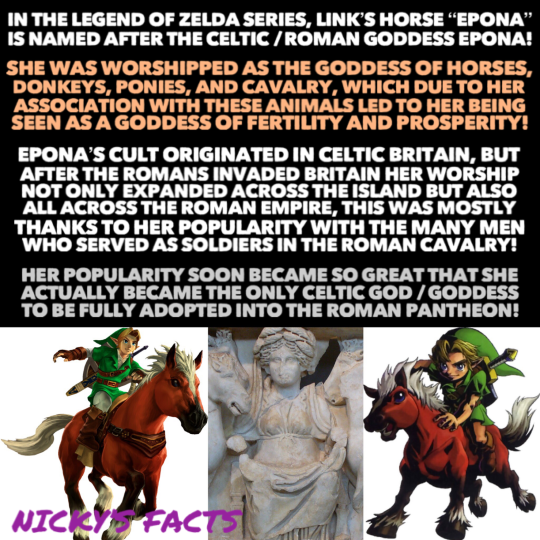
All hail the Celtic goddess of trusty steeds!
🐴
#history#epona#horse#video games#legend of zelda#celtic#mythology#roman empire#goddess#cavalry#british history#donkey#nintendo#celtic britain#britain#celtic history#myth#divine feminine#roman britain#gamer girl#legend of zelda ocarina of time#celtic mythology#fertility#roman pantheon#roman history#ponies#uk#video game history#celtic goddess#nickys facts
49 notes
·
View notes
Photo
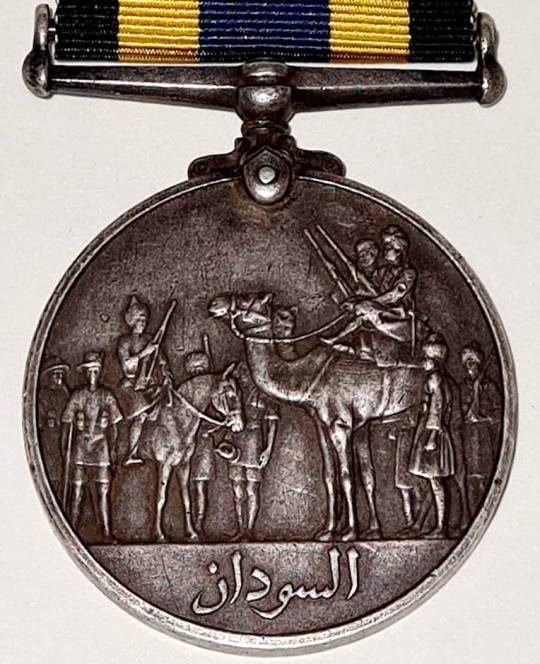
https://en.wikipedia.org/wiki/Sudan_Defence_Force_General_Service_Medal
1 note
·
View note
Note
Out of curiousity, do you think most national museums are participating in the same kind of thing that the British Museum is, i.e. holding onto items that they stole in conquest / archaeological items that other nations are requesting back?
I always wonder if we should be looking at the bigger picture rather than just this one spotlighted issue (not that the spotlight isn't important in raising the issue originally).
oh goodie we're digging up stuff I wrote from 2 years ago...yay
Okay, for starters, let's look at how you've phrased your question. Currently, the heavy implication is that this is all the BM is (i.e. it only holds colonial loot and contested items), which is false. Yes, it does hold colonial loot from the British Empire. No one is disputing that. It also holds contested items such as the Parthenon Marbles and the Rosetta Stone. What it also holds are many items taken from digs where the country in question permitted them taking them, and then also gifts and other such non colonial requisitions.
Mostly, I need to stress, because as someone who's adjacent to museums this drives me insane: Framing all museum collections as Bad and only containing Bad Items from Bad Deeds doesn't give you the full picture and if you don't have the full picture you can't really address the issue of repatriation properly. It's the classic 'All or Nothing' mentality and I'm begging people to seek nuance on complex topics such as this. Also governments suck and so hearing repeated 'well museums suck because XYZ' means they're more than happy to simply defund them, which they already are doing and that's not helping stuff like repatriation either.
In short, if you're asking does any other museum have a law like BM63 (I wrote 68 in the post because...I'm bad at numbers)? Not as far as I'm aware, no. The BM is unique in that instance where the government literally created a law to prevent it from divesting of its collection.
Do other national museums hold colonial looted artefacts and contested items? Yes. Lots of them. All over the world.
Germany's Neues Museum holds the bust of Nefertiti, which is contested.
The Louvre in Paris has multiple Italian artworks that were stolen in the 1790s that Italy wants back.
The Horses of St Mark's (in Venice) were stolen from Greece by Constantine in the 1200s. (Not really all that contested but they were definitely stolen).
Yale University holds numerous items from Machu Picchu. The 1911 dig had permission from the Peruvian Government, but the items were supposed to be returned. I believe (don't quote me) that less than half were originally. They have subsequently been returned, but this is not an uncommon story.
There's a bunch of Nazi looted artworks that are in museums that need to be returned to their rightful owners.
The MET museum in the US and everything it got from Douglas Latchford (this is ongoing, with some repatriations having already happened)
The National Museum of Australia also got caught out by that guy.
To be fair, the MET Museum has a problem with looted artefacts in general from the 70s onwards as they tried to compete with the European collections and thus ended up gaining a lot of 'not properly provenanced artefacts'. There was a gold sarcophagus they returned only recently that was looted from Egypt post-2011.
The Bible Museum in the US has...stuff it shouldn't (there's a lot and I'm not listing it).
*voice dripping with derision* Whatever the Hobby Lobby is up to
I could go on!
Focusing solely on the BM is a result of a US-Centric mindset, and a pervasive anglophone bias in things people will read. (Or in other words: It's fun to shit on the Brits and most of you only read English anyway.)
This has the unfortunate effect of making it seem like the BM is only museum in the world doing this, and they're not. Not in the slightest. Many museums, national or not, will have colonial looted items if that country has, at any time in the past, waged expansionist wars against other nations, no matter how brief. If your local museum has artefacts from Not Your Country there's a good chance they were looted! Again, I stress that many many artefacts that left places like Egypt were part of agreements with the Egyptian government (called partition agreements) whereby the Egyptian government took first pick of artefacts from a dig and then the dig organisers could take the rest. This hasn't happened since UNESCO World Heritage Convention 1975, which prohibits new artefacts from leaving countries which is also why I will bonk on the head with a cardboard tube anyone who says Archaeologists/Museums are still stealing things.
So yeah, if you're looking at repatriation, you'll be much better looking at the bigger picture and understanding how all this came to be in the first place than you'll ever be making memes about the BM stealing things on the internet.
2K notes
·
View notes
Note
I’m wondering if you have thoughts on James Baldwin’s “open letter to the born again”? I’m struggling a bit with what his point is in that piece; it feels kinda dismissive on Jewish zionists agency in creation of Israel? But I may be missing parts or not getting things
The text in question.
And the segment I think anon is struggling with:
I know what I am talking about: my grandfather never got the promised “forty acres, and a mule,” the Indians who survived that holocaust are either on reservations or dying in the streets, and not a single treaty between the United States and the Indian was ever honored. That is quite a record.
Jews and Palestinians know of broken promises. From the time of the Balfour Declaration (during World War I) Palestine was under five British mandates, and England promised the land back and forth to the Arabs or the Jews, depending on which horse seemed to be in the lead. The Zionists—as distinguished from the people known as Jews—using, as someone put it, the “available political machinery,’’ i.e., colonialism, e.g., the British Empire—promised the British that, if the territory were given to them, the British Empire would be safe forever.
But absolutely no one cared about the Jews, and it is worth observing that non-Jewish Zionists are very frequently anti-Semitic. The white Americans responsible for sending black slaves to Liberia (where they are still slaving for the Firestone Rubber Plantation) did not do this to set them free. They despised them, and they wanted to get rid of them. Lincoln’s intention was not to “free” the slaves but to “destabilize” the Confederate Government by giving their slaves reason to “defect.” The Emancipation Proclamation freed, precisely, those slaves who were not under the authority of the President of what could not yet be insured as a Union.
It has always astounded me that no one appears to be able to make the connection between Franco’s Spain, for example, and the Spanish Inquisition; the role of the Christian church or—to be brutally precise, the Catholic Church—in the history of Europe, and the fate of the Jews; and the role of the Jews in Christendom and the discovery of America. For the discovery of America coincided with the Inquisition, and the expulsion of the Jews from Spain. Does no one see the connection between The Merchant of Venice and The Pawnbroker? In both of these works, as though no time had passed, the Jew is portrayed as doing the Christian’s usurious dirty work. The first white man I ever saw was the Jewish manager who arrived to collect the rent, and he collected the rent because he did not own the building. I never, in fact, saw any of the people who owned any of the buildings in which we scrubbed and suffered for so long, until I was a grown man and famous. None of them were Jews.
And I was not stupid: the grocer and the druggist were Jews, for example, and they were very very nice to me, and to us. The cops were white. The city was white. The threat was white, and God was white, Not for even a single split second in my life did the despicable, utterly cowardly accusation that “the Jews killed Christ’’ reverberate. I knew a murderer when I saw one, and the people who were trying to kilI me were not Jews.
But the state of Israel was not created for the salvation of the Jews; it was created for the salvation of the Western interests. This is what is becoming clear (I must say that it was always clear to me). The Palestinians have been paying for the British colonial policy of “divide and rule” and for Europe’s guilty Christian conscience for more than thirty years.
Finally: there is absolutely—repeat: absolutely—no hope of establishing peace in what Europe so arrogantly calls the Middle East (how in the world would Europe know? having so dismally failed to find a passage to India) without dealing with the Palestinians. The collapse of the Shah of Iran not only revealed the depth of the pious Carter’s concern for “human rights,” it also revealed who supplied oil to Israel, and to whom Israel supplied arms. It happened to be, to spell it out, white South Africa.
Well. The Jew, in America, is a white man. He has to be, since I am a black man, and, as he supposes, his only protection against the fate which drove him to America. But he is still doing the Christian’s dirty work, and black men know it.
My friend, Mr. Andrew Young, out of tremendous love and courage, and with a silent, irreproachable, indescribable nobility, has attempted to ward off a holocaust, and I proclaim him a hero, betrayed by cowards.
For context: Andrew Young, considered the right hand of MLK Jr, had a longstanding and occasionally fraught relationship with the Jewish community. He stepped down from Congress shortly after being forced to choose between voicing support for Palestine and continuing to work towards black-jewish interests by his constituents and fellow politicians, as he felt very strongly about supporting both. This was a fairly unpopular move. While I don't believe he ever called himself Jewish by the strictest sense, he was actively involved in Jewish communities and the known "white" ancestry within him is a Polish Jew in his great grandparents.
To be honest, I don't really see much a problem with this as I think it fairly closely matches up not only with my understanding of the history of this problem but also my own country's part in it as well as my personal feelings on it decades later. It pretty blatantly says that Zionism is utilizing a machination of white supremist colonism due to the extensive history of antisemitism and having had the ancestral land dangled in front of them like bait on a hook from the British Empire, which owned Palestine at the time. It also goes on to say that many Zionists aren't even Jewish and are antisemitic in nature, but are Christians happy to get rid of as many Jews as possible and how that tracks due to the Christian church's millennia-deep history of antisemitism.
I don't think it lets anyone off the hook. I think it pretty much flat out says this is a problem caused first and foremost by white Christians who hate Jews and Arabs alike and have a vested interest in getting the two populations to fight because it'll be easier to kill off just the one group instead of both of them, if one ends up eradicating the other. It even talks about the friction between the black community and the Jewish community, what caused it, what drives it, how that friction in itself is a tool of white supremacy to hurt us both.
219 notes
·
View notes
Text
Re-reading His Majesty's Dragon and the immediate thing that sticks out to me (besides my brain just flailing DRAGONS like the inner fangirl it is)...
Is how much the English treatment of dragons sucks.
I remember that being something of a slow build the first time I read it. Admittedly, I think that was mostly because that was like, over a decade ago, and I was just a teenager who just wasn't as media literate. It was also partially because of genre convention. For every 'dragon rider' story out there where the dragons and the humans are equal partners in societies where they have the same status, there's probably two others where dragons really are more animal-like, and must be trained like horses or raptors. (Or else, ones where they have human-level sapience but the narrative doesn't see anything wrong in treating them like animals.)
But in this series?
Temeraire comes right out of the egg talking. And not baby talk or anything. Fully formed, thoughtfully constructed sentences. He's young and naive and inquisitive and prideful but from the start he's clearly a person.
Yet what's the first thing he-- and all other English dragons-- receive?
A harness. Or else he might fly away, a wild creature.
Over the first part of the book we learn how:
the average person deeply mistrusts dragons, fearing that even "well trained" ones will lash out and kill humans
joining the dragon corps is considered... well, not a fate worse than death. but certainly not a respectable profession by any means
as such, said dragon riders are pretty firmly cloistered from polite society as much as possible.
all dragons are subject to eugenics breeding program to develop specific skills and traits
the army does everything it can to control who a dragon's handler is. they tell Temeraire truly dreadful lies about Laurence to debase his self-esteem and trick him into accepting another rider... No doubt these tactics are not unusual.
All these passing comments about "no one understands" the intellect of dragons, or how they make decisions, or roll their eyes at the creatures being so headstrong
but they're just
they're just people
and yes this becomes a bigger themes in later books. as we begin seeing other societies and discover that in other cultures dragons are treated as people, sometimes with great social standing...
but man it should be apparent from the start how truly fucked up the British Empire was on this front. (but then, it was the British Empire. So of course)
250 notes
·
View notes
Photo

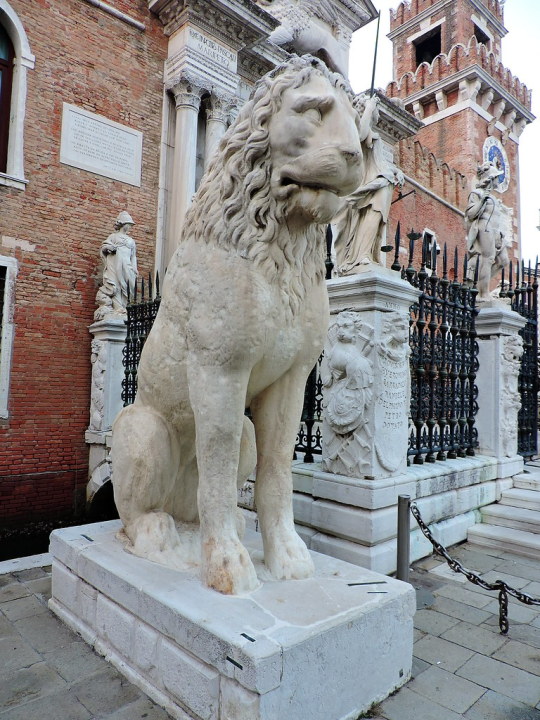
The Parthenon marbles this, the Parthenon marbles that...
I don´t know how known the extent of Greek antiquity looting by West Europeans is to most people or most have a limited image painting the British Museum or Lord Elgin as the sole / main villain.
Here we have the Piraeus Lion (Italian: Leone del Pireo) , one of the four lions decorating the Venetian arsenal in Italy. The prominence of the 3 meter tall lion statue in the port is such that it is also known as Porto Leone ("Lion Port").
We are eternally thankful for the massive courtesy of calling the statue the Piraeus Lion, indicating its origin from Piraeus, the port city of Athens. The statue was sculpted around 360 BC and remained a famous landmark of Piraeus, Athens until 1687.
In 1687, it was looted by Venetian naval commander Francesco Morosini, the man also notoriously responsible for the bombardment of the Parthenon during the wars of the Venetians with the Ottoman Turks, therefore in fact the most irreversible destruction it suffered in its 2,500 year long history. Somehow they were fighting the Turks but it was the Greeks paying for it.
Is it totally and universally acknowledged that Morosini illegally looted this sculpture among so many others? Yes. Does the Piraeus Lion still sit casually in the Venetian port in 2024 as if Venice has a shortage of artefacts to decorate itself with? Also yes. Meanwhile, the Greeks have to limit themselves to a replica in the Piraeus Archaeological Museum.
The Horses of Saint Mark in Venice are also Greek artefacts, this time looted from Constantinople during the crusades, although their original display was in Chios island. Another thing little known is how many ancient and medieval Greek artefacts were looted from the Eastern Roman / Byzantine Empire because people tend to focus on classical antiquities looted in the 19th century.
[Fun fact: The Piraeus Lion has runic inscriptions carved by Swedes in the 11th century. These were either Viking explorers or Varangian mercenaries of the Byzantine Empire.]
#greece#europe#greek culture#ancient greece#western appropriation#crusades#antiquity looting#ancient greek statues#piraeus lion#venice
114 notes
·
View notes
Text
Who Wants a Non-Hessian German Troops of the American Revolution Uniform Identification Flow Chart?
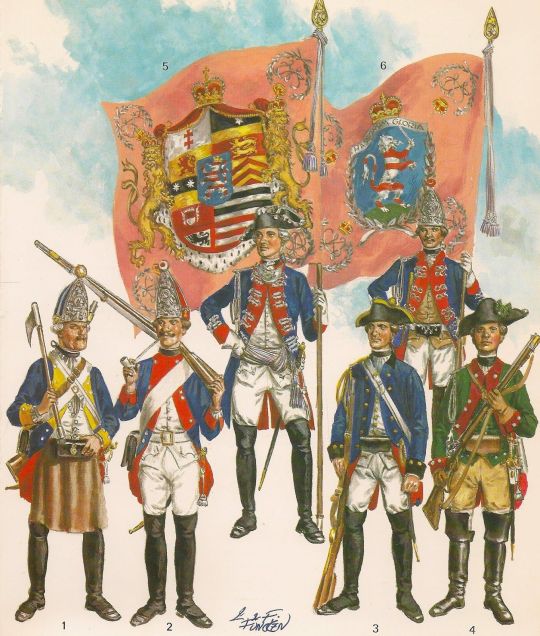
Now you too can roleplay as a harried British staff officer trying to identify which troops are encamped where, or a devious rebel spy collecting intelligence.
As folks may or may not know, only roughly 50% of the German state troops who served the British Crown during the American Revolution were “Hessians” from Hesse-Cassel. There were six other states that provided “subsidy troops.” Here’s how to tell them apart at a glance.
Are their uniforms predominantly dark blue? If yes, go to the paragraph numbered 4. If no, go to the para numbered 2.
2. Are their uniforms predominantly white? If no, go to the para numbered 3. If yes, those are troops from Anhalt-Zerbst. The only German state involved in the war to take its uniform and organisational cues from Austria rather than Prussia, the single Anhalt-Zerbst line regiment deployed to America wore white regimental coats faced with red. Their grenadiers wore bearskins rather than metal-faced caps (the only other German state to do this was Waldeck). One battalion also, according to one shocked British officer, had one of the most outrageous-looking uniforms of the war, including hussar hats, red and yellow waist sashes and red cloaks - these may have been “pandour” irregulars from the edges of the Austrian empire.
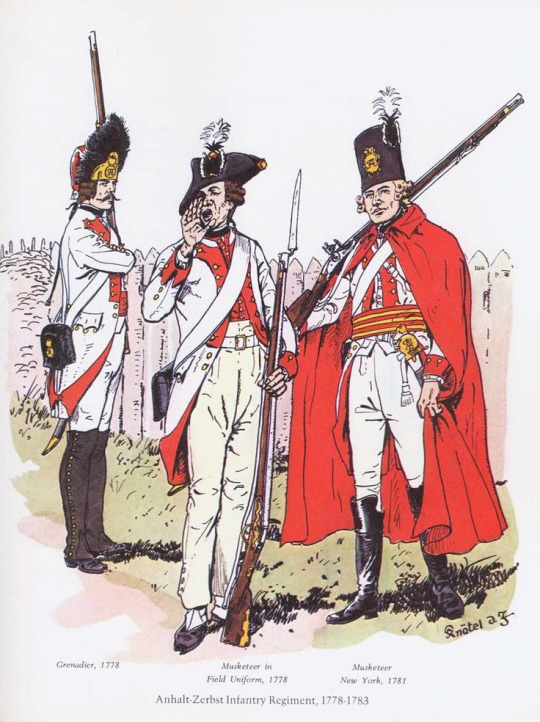
3. The coats are neither white nor blue, so they must be red. In this case, the troops are Hanoverian. While still mostly following Prussian style, because they shared a ruler with Britain, Hanoverian troops wore red. Five Hanoverian regiments assisted Britain with vital Mediterranean defence during the American Revolution, before going on to fight in India. They were the only redcoat Germans fighting for the Crown outside the British Army.
4. Your Germans are wearing blue coats. Are the buttons on the coat lapels arranged 1-2-1, and do the cuffs have a “Swedish” style slit to them? If no, go to the para numbered 5. If yes, they��re from Brunswick-Wolfenbüttel. Brunswick provided the most soldiers after Hesse-Cassel, and arguably the most rounded force, with four line regiments, one dragoon regiment, one grenadier battalion and one light infantry battalion. But whether jäger, musketeers or grenadiers, they almost all had coat buttons in groups of 1-2-1 and the slit-style cuffs. Fun fact; the Brunswick crest of a racing white horse on a red field was the same as neighbouring Hanover’s.

5. Your Germans are wearing blue, but don’t have buttons in 1-2-1 and Swedish cuffs. Do they have yellow facings, and cuffs with buttons placed both horizontally and vertically? If no, go to the para numbered 6. If yes, they are from Waldeck. This German state usually provided troops for the Dutch, but raised a new unit, the 3rd English-Waldeck Regiment, for service in America. They mostly fought against the Spanish in the Deep South, where they were decimated by disease. If the unusual position of the buttons on the cuff isn’t enough, look for the belt plate bearing “FF” for “Fuerst Friedrich,” the state’s ruler.
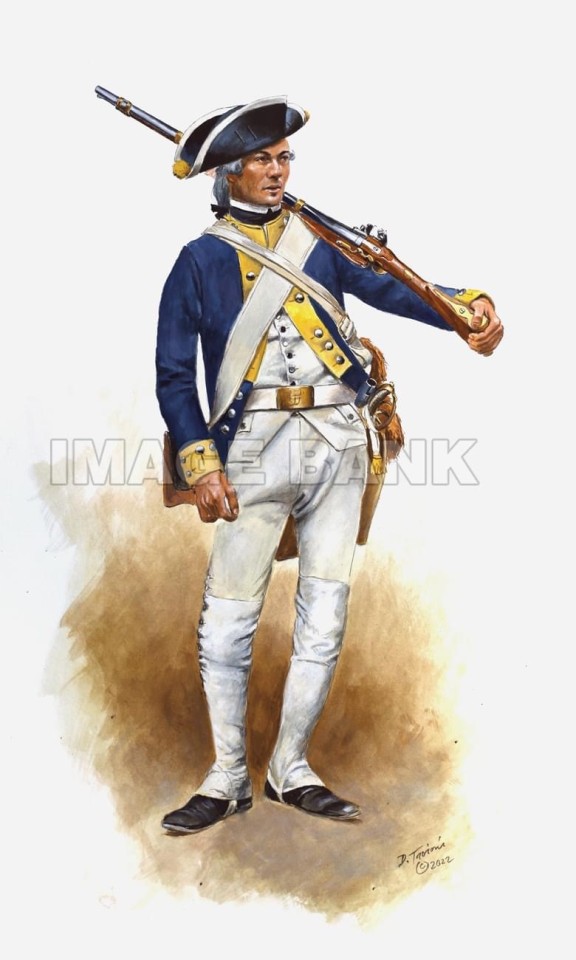
6. Do your blue Germans have red facings, cocked hats and unusual lace on their coats, shaped like a figure-of-eight? If no, go to the para numbered 7. If yes, they’re from Hesse-Hanau. This state was closely related (in the sense of its ruler, literally) to Hesse-Cassel, yet remained independent. While it provided a small amount of artillery, jägers and freikorps light infantry, its main contribution was a single line regiment, Erbprinz. Their distinctive features were scalloped lace on their cocked hats and the figure-of-eight “Brandenburg” style lace. There was also a Hesse-Cassel Regiment Erbprinz (even sharing the same colonel-in-chief), but they were fusiliers with caps rather than the Hesse-Hanau musketeers with their cocked hats. Check the mistake made by this artwork - these are Hesse-Hanau soldiers from the Infanterie Regiment Erbprinz, but they’re wearing Cassel fusilier caps. Bonus fact; Hanau and Cassel’s crest both features a rampant lion with red and white stripes, but there are subtle differences - they face opposite directions, the style of stripes are slightly different, and the Hanau lion lacks the Cassel one’s crown, but does wield a sword.

7. Do your blue-coated Germans have a black eagle on their flags and grenadier cap plates? If no, they’re probably from Hesse-Cassel. If yes, they’re from Ansbach-Bayreuth. This German state consisted of two provinces, Ansbach and Bayreuth (funny that). Besides jägers and some battalion guns, their main contribution was two infantry regiments, one from each of the two provinces. Their ruler’s crest was a black eagle, similar to the Prussian one.
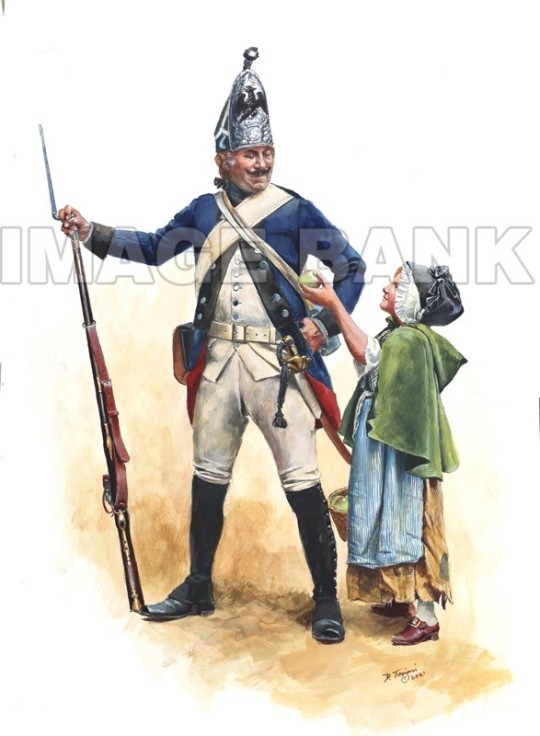
Of course these posts don’t account for the uniforms of the jäger corps, or musicians, or any artillery, but it can serve as a rough guide. For the proper detail, you’ll have to buy my forthcoming book on the topic!
Also would be pretty cool if someone made an actual flow chart out of this, just saying!
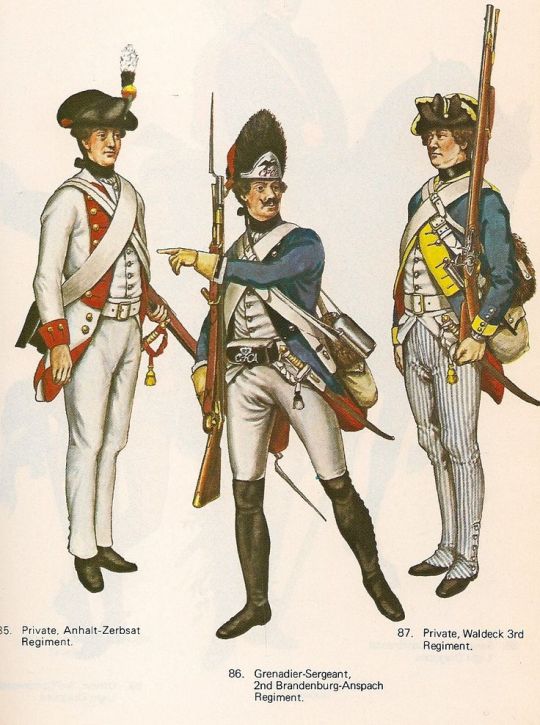
#hessian#hessians#german#germany#german army#german military#18th century#history#military history#american revolution#revwar#american war of independence
344 notes
·
View notes
Text
The Achaemenid/First Persian Empire is kind of wild. At the time of its greatest conquests it was the largest empire the world had ever seen, by a significant amount. Like any good empire it's a triumph of logistics, of course, but what's unusual is the character of the logistics in question. The kinds of empire we're used to are generally either basically maritime (Roman, Spanish, British, American) or basically horselord (Xiongnu, Parthian, Mongol, American) or Chinese (special case, the general tendency for there to exist a Chinese Empire is impressive in its own right but relatively familiar).
The Achaemenid Empire touched a lot of seas and bodies of water (Indus, Indian Ocean, Persian Gulf, Tigris and Euphrates, Red Sea, Nile, Mediterranean, Aegean and Bosporus, Black Sea, Caspian Sea) and certainly these would have been used to facilitate logistics to some degree (Persian invasions of Greece relied on naval support, for example), but it certainly seems like the fundamental lifeline of their state was their extensive system of roads. The Romans talk a big game about their road system but ultimately the major logistical corridors of the Roman state were maritime and riverine. The Inca Empire was similarly road-based, likewise a hilly/mountainous region, and is also extremely cool, but didn't last nearly as long and was much smaller.
Herodotus says: "There is nothing mortal that is faster than the system that the Persians have devised for sending messages. Apparently, they have horses and men posted at intervals along the route, the same number in total as the overall length in days of the journey, with a fresh horse and rider for every day of travel. Whatever the conditions—it may be snowing, raining, blazing hot, or dark—they never fail to complete their assigned journey in the fastest possible time. The first man passes his instructions on to the second, the second to the third, and so on." A different translation of a section of this passage is famously associated with the US postal service.
Herodotus may be wrong in the details because the actual intervals between adjacent waystations seem to have been on the order of 16-26km, a distance a rider could reach in an hour (and perhaps most relevantly, a pedestrian or army might reach in a day), and as such it's certainly plausible horses were changed more than daily, as is attested in later relay postal networks, but it's easily possible he was right about their incredible speed. A perhaps somewhat generous estimated speed of government messages along this route is ~230km/day, by analogy of the pirradazish to the Pony Express and barid systems. This would make them faster than Roman communications, though certainly we have to recognize that maritime transport is ultimately faster and more convenient for trade in bulk goods and food. All figures taken from H.P. Colburn, "Connectivity and Communication in the Achaemenid Empire" Journal of the Economic and Social History of the Orient 56 (2013).
That's so cool! It's several hundred BCE and they have a complex permanent relay system with stations every couple dozen km, on a system of roads running throughout an empire thousands of km from center to edge. Just for one road, like the Sardis-Susa section that the Greeks usually talk about, that's over a hundred stations, each with a stock of supplies, backup mounts and riders, accommodations, anything else they might need, and Sardis-Susa was just one possible road stretch among many. That's incredible! I wish we knew what the people who made it and ran it thought. What was the life of a gas station attendant waystation operator in the reign of Artaxerxes I like?
It's kind of tragic that the Achaemenid Empire has been marginalized historiographically for so long. Generally it was treated as significant for its invasions and meddling in Greece, for ending the Babylonian captivity, or for providing a ready-made empire for Alexander to take over. It's not nothing, other places and time periods end up with much less of an imprint on our contemporary understanding of the past. We know a lot of cool stuff. But I wish we had more reflections on Persia from within. Most of what we seem to have is reports from Greeks, fragmentary letters and steles, and precious few excavation sites.
168 notes
·
View notes
Photo

Knight Templar (2422).
The property of Mr. George Burton. By Royal Knight out of Silly 1st, by Wonderful Lad.
Sir Humphrey de Trafford, 1907, The Horses of the British Empire, Vol. 1.
#Yorkshire Coach Horse#extinct breed#harness horse#coach horse#stallion#Knight Templar#The Horses of the British Empire#1907
24 notes
·
View notes
Text
The Great British Sim Challenge: The Dark Ages
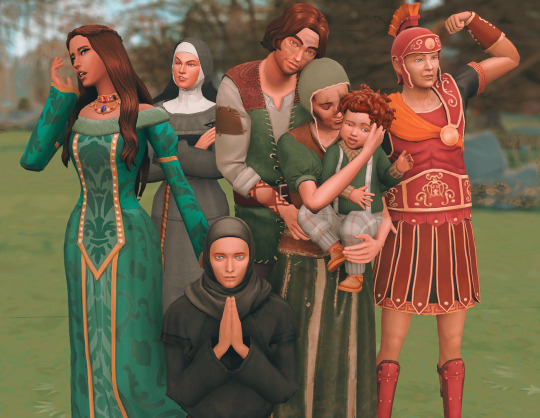
This history challenge will take you through some of the highs and lows of British history, beginning in the Iron Age and ending in the Medieval Era.
There are goals to complete for each era, but also rules which make the goals more challenging to complete.
There are ‘special events’ that could help or harm your progress to the goals e.g. the Black Death or having your prayers answered in the Medieval era . Think of them like the ‘Chance card’ in Monopoly.
In every era you'll have choices to make, with optional pathways within the goals. For example, will you choose to move deeper into the Roman Empire and become a gladiator, or will you stay in Britain and join the Celtic rebellion against the Romans?
While the challenge tries to stay fairly accurate to key events, lifestyle and culture of the different periods, there is one huge historical inaccuracy: it is a history without bigotry. Sims of all identities can be part of the challenge and live their lives with full acceptance and equality.
Now updated to include all recent packs: Horse Ranch, High School Years, For Rent, Growing Together
Download for free at Patreon
61 notes
·
View notes
Text
Liberty versus the Tree of Life
TW: Discussion of death and grief
I received a question from @lickthecowhappy the other day on one of my metas that I'm going to try and address in this post. This is going to wander into some pretty heavy areas, and discuss some implications for S3.
They asked:
"What do you think about comparing "give me liberty (coffee) or give me death" with gaining free will via the tree of knowledge but losing access to the tree of life in the process?"
On one hand this might look like a simple choice between two things, but its not - there are shades of grey, of course. Can the two (liberty/death vs. knowledge/life) be compared? Yes - in a way. But we need to unpack the question in its entirety first.
"Give me liberty, or give me death!"
This famous quote that forms the basis of the name of Nina's coffee shop is from a reconstructed speech given by the American politician Patrick Henry in 1775, as the colonists prepared to fight against the British Empire. It is worth us having a look at the extended excerpt of the speech quoted from Wikipedia in context of what we know is coming in S3:
If we were base enough to desire it, it is now too late to retire from the contest. There is no retreat but in submission and slavery! Our chains are forged! Their clanking may be heard on the plains of Boston! The war is inevitable and let it come! I repeat it, sir, let it come. It is in vain, sir, to extenuate the matter. Gentlemen may cry, Peace, Peace but there is no peace. The war is actually begun! The next gale that sweeps from the north will bring to our ears the clash of resounding arms! Our brethren are already in the field! Why stand we here idle? What is it that gentlemen wish? What would they have? Is life so dear, or peace so sweet, as to be purchased at the price of chains and slavery? Forbid it, Almighty God! I know not what course others may take; but as for me, give me liberty or give me death!
If the mention of Boston wasn't there, you could almost read that as a crazy synopsis of S2 and S3. The Great War, that wasn't considered concluded satisfactorily and must be restarted and finished once and for all, has begun again, and is on its inexorable way. There will be storms. Some see the outcome in black and white - you either win or die; there is no other option, because they do not dare entertain it.

The fandom seems quite settled with the analogy of liberty and freedom = coffee, and six shots of espresso is Crowley's coffee preference, because he loves and protects his freedom with a passion. Crowley is that coffee, in a way - long, dark and richly intense. He is a champion of free will. Even as a demon he still gives those he tempts the choice to make their own mistakes. So how do we apply this to the coffee the Metatron offers Aziraphale, and the other option, death?

The coffee the Metatron orders and forces on Aziraphale is a message, and a warning, to the angel - "I know all about you and your demon partner." The shot of coffee in it is Crowley, the oat milk is to say Aziraphale has maybe gone a bit too far with things with Crowley while on Earth, and the almond syrup is to say they have been watched and observed do so. This is confirmed when the Metatron mentions that he knows that Aziraphale and Crowley have formed a de facto partnership.
And where would Aziraphale get his Crowley from if he went back to Heaven?
What about death? Is it a real option? What does the option of death mean anyway?
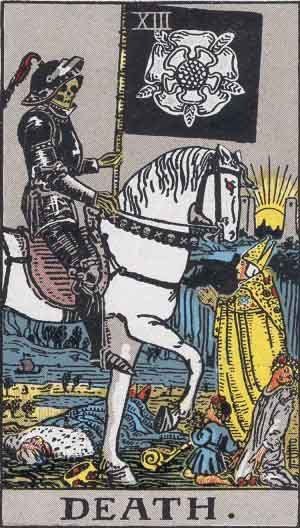
If you are not familiar with the Tarot deck, the Death card can seem quite alarming. A skeleton in black armour strides over a fallen king - death does not care for rank or position. Death cares not for riches, they will not hold it at bay. Nor will prayers. Death does not care what age you are, either. But the small, kneeling child holds a posy of flowers up as if in greeting, the only one prepared to face the rider on the pale horse; this is because children are not as always as set in their ways as adults are, and can adapt to change more easily.
Experienced Tarot users know that is what the Death card signifies when it appears: Change. Something is coming to and end, but something else is about to start as well. It's not a physical death, its a spiritual or metaphorical death. It should be a welcomed card, as it indicates there is a promise renewal and new beginnings on the horizon (see the dawning sun between the two pillars in the top right of the card?) and all one has to do is surrender to the inevitable change. But like death, making changes can sometime be a hard, fearful thing to face. Facing death, either your own or someone else's, is ultimately about accepting change.
Surrender to the British is not what Patrick Henry wanted to do. He wanted to keep the liberty he had in the new world.
But death was the only viable option Aziraphale had.
"So predictable," remarked the Metatron to Nina, when she told him people don't ever ask for death in response to his question. Death is present in Nina's coffee shop - it's the green colour on the inside walls.

I haven't done much colour meta lately but I have been doing a lot of research on them, as I realized the original meta I wrote needed a major revision, which I plan to do soon. Green was one of those colours that needed more work.
The green on the inside walls actually has two meanings, which are both specifically tied to the coffee shop, but the first one is Death, with the capital D. This is one of the Four Horsepeople lurking in the background of S2, as Armageddon prepares to ramp up again. War is on the label of the wine bottle Crowley has in S2E5, Famine is the Marley Horse statue that Crowley puts his sunglasses on inside the bookshop, and where the stone-shaped Eccles cakes are placed in offering. Death is waiting inside the coffee shop, right next to the constraining sky-blue moral lawfulness of Heaven.
Death rides a pale horse, but the word used to describe it, "chloros," actually translates to a "pale greenish-yellow." That would have looked a bit sickly inside the coffee shop, I think, so they used a more complimentary shade of green, and one that would double up with a second meaning. Green is also the colour associated with new beginnings and the resurrection. That's why the outside of The Resurrectionist pub is dark green - it's got nothing to do with Hell (at least, I don't think it does, in this case!)
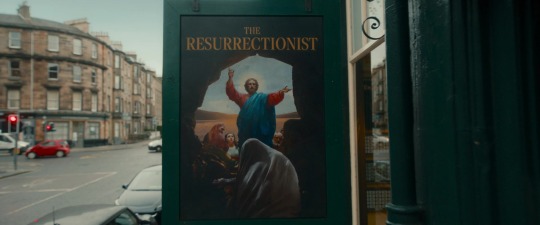
The Second Coming is in progress. Armageddon is underway again. Someone in Heaven is determined to see the supposed Great Plan come to fruition.
The Riddle of the Sphinx

In Sophocles play Oedipus Rex the titular character meets the Sphinx on a hill outside of Thebes. The monster has been devouring travelers who do not answer her riddle correctly.
"What is the creature that walks on four legs in the morning, two legs at noon, and three in the evening?"
Clever Oedipus replies with "Man," and defeated, the Sphinx departs, removing her curse from the city.
A baby crawls on four limbs into childhood, then two legs into adulthood, then on three legs with a cane for an aid into old age. This is the natural progression of life. You would not want to remain an infant forever, and similarly if you have children wouldn't you wish to see them progress from childhood to adulthood and have children of their own?
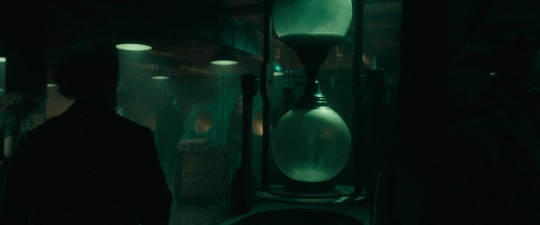
Remember Momento mori? It's a major theme in the series. Remember that you die. It's a reminder that cycles must end and restart, and that death is an important part of life. We saw the Starmaker set up a star factory, but even stars die eventually, and need to die, to make new stars. The universe recycles itself, that is how it keeps going. Sometimes we need a reminder that life is short, although sometimes it seems too long as well.

I think we too easily forget that our ineffable duo, as angel and demon, are entities that can effortlessly travel between these two worlds of life and death, as we humans see it. It's their business to do so, after all. As supernatural beings, they are eternally alive, and death has a different meaning to them - it's destruction that they fear.
The Tree of Knowledge & The Tree of Life
Aziraphale's role as Guardian of the Eastern Gate was to prevent humans returning to the Garden of Eden to access the Tree of Life after they had eaten from the Tree of Knowledge.

The Tree of Knowledge gave us questioning, curiosity and imagination. We learned, we created and in doing so made choices - we used free will. But in taking this liberty it gave us the responsibility for ourselves. It supposedly gave us the concept of sin and doing wrong, and also shorter lives to help us deal with the "agony" of this.
And the other option, the Tree of Life, that is apparently so dangerous we must be kept away from it? Is it death? No, quite the opposite - it offers eternal life, and redemption from sin. In short - a state of no change - and no choice.
To access the Tree of Life now the choice is made for you before you can arrive in front of it, in the Book of Life. If your name is in the Book on Judgement Day, you get to enter Paradise. If it is not, you will be cast down into a lake of burning sulfur (hmm, sounds familiar...) And that's it, forever and ever.

Is that really the ideal of Paradise? Yet we're made to fear the cyclic change and new growth that death brings, and want to yearn so much for the stagnation of Eternity that we rigidly structure our lives around a possible promise of it as a goal.
Eternal Life, Eternal Youth
Eternal life is not the same as eternal youth. In a cautionary tale from Ovid's Metamorphoses we have the Cumaean Sybil who lived a thousand years. She was the priestess of the oracle of Apollo at Cumae, near Naples, and apparently Apollo offered to grant her a wish in exchange for her virginity. She scooped up a handful of sand, and asked to be given as many years of life as there were grains of sand that she held. Later, she refused to sleep with the god, so he let her physical body wither away, because she had failed to ask for eternal youth as well. Her body shrunk as the years went by, and grew smaller and smaller, and eventually only her voice was left, kept contained in a jar. (And here is a link to one of the books on Jim's bookshelf - Sylvia Plath's The Bell Jar is named after the ampulla that the Sybil's voice was said to have been kept in.)

Searching for a Fountain of Youth, or creating a Philosopher's Stone for immortality has a common theme in stories through history, even from earliest times. It can be seen as a blessing, or a curse, or a fool's errand. It's a quest that is still prevalent in our modern thinking - going to the gym to build muscle, cosmetic surgery for looks only etc Queer culture has long had an emphasis on youth and beauty and growing old is anathema; freezing the body in time like in Oscar Wilde's The Picture of Dorian Gray is an aim, but our fragile mortal frames just aren't made for that. Isn't it what is inside us that counts, not the label we have applied to it?
Choices, Choices...
The time has come to make a choice: will it be the stimulating coffee of free will, or the painful change and rebirth of death, that might lead to something even better?
Perhaps you want to try the other combination: Having control and responsibility over your own short life in exchange for having to live your life to a strict set of rules so that you can then exist forever in somebody else's idea of a static ideal afterwards.
I find I'm a bit biased. But you chose what you will.
“What we call the beginning is often the end. And to make an end is to make a beginning. The end is where we start from.” T. S. Eliot
#good omens#good omens 2#good omens meta#crowley#aziraphale#the metatron#the resurrectionists#the four horsemen#sophocles#oedipus rex#the riddle of the sphinx#memento mori#the tree of life#the tree of knowledge#the cumaean sybil#the bell jar#the picture of dorian gray#the book of life#judgement day#give me coffee or give me death
59 notes
·
View notes
Text
"Jews and Palestinians know of broken promises. From the time of the Balfour Declaration (during World War I) Palestine was under five British mandates, and England promised the land back and forth to the Arabs or the Jews, depending on which horse seemed to be in the lead. The Zionists—as distinguished from the people known as Jews—using, as someone put it, the “available political machinery,’’ i.e., colonialism, e.g., the British Empire—promised the British that, if the territory were given to them, the British Empire would be safe forever.
But absolutely no one cared about the Jews, and it is worth observing that non-Jewish Zionists are very frequently anti-Semitic. The white Americans responsible for sending black slaves to Liberia (where they are still slaving for the Firestone Rubber Plantation) did not do this to set them free. They despised them, and they wanted to get rid of them. (...)
But the state of Israel was not created for the salvation of the Jews; it was created for the salvation of the Western interests. This is what is becoming clear (I must say that it was always clear to me). The Palestinians have been paying for the British colonial policy of “divide and rule” and for Europe’s guilty Christian conscience for more than thirty years. Finally: there is absolutely—repeat: absolutely—no hope of establishing peace in what Europe so arrogantly calls the Middle East (how in the world would Europe know? having so dismally failed to find a passage to India) without dealing with the Palestinians."
James Baldwin, from this article on The Nation (1979)
55 notes
·
View notes
Text
His Last Bow
Hey Tumblr,
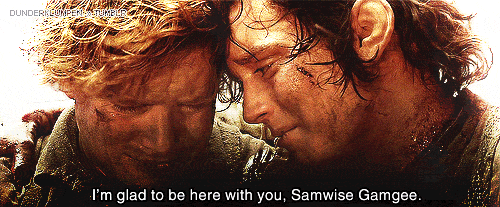

I have 0 idea what happens in this story. Kind of hoping it's a bit like Curtain, the last Poirot story, because that's a bop. Well, it's very depressing, but I love the solution. Although I also really hope it isn't, because then Agatha Christie would have copied that and I really don't want that to be the case.
I also really want ACD to have done something insanely over the top and decisive to make it really clear that this time there would be no retconning. Like... idk, the world being invaded by aliens. Sherlock Holmes stealing the crown jewels and being executed for treason. Mycroft turning out to have been a double agent all along and destroying the entire British Empire.
I'm no longer feverish, although my lungs are still trying to propel themselves out of my body in a way that keeps leaving me a little asphyxiated, so that's fun. But no jellyfishifters this time I expect. Or sea turtles... Yeah, Idk either.
It was nine o'clock at night upon the second of August—the most terrible August in the history of the world.
Oh Watson, you sweet summer child. I bet I've seen worse Augusts. Even if Holmes does die in this one.
The sun had long set, but one blood-red gash like an open wound lay low in the distant west.
London... is now... a hellmouth?

Are we not in London? Is that the city from a distance. Where are we? Why is the sky split open? What is going on?
The two famous Germans stood beside the stone parapet of the garden walk...
The only two famous Germans. Ever. You know... those two.
Oh, so we're actually in the 'Sherlock is a spy' period. Weirdly I assumed that that was only going to be referenced. But no, we're actually going there.

So the red line is... the war front?
One of these was his present companion, Baron Von Herling, the chief secretary of the legation, whose huge 100-horse-power Benz car was blocking the country lane as it waited to waft its owner back to London.
Is the Baron compensating for something? Maybe.
But we're not in London and we're not near the war front, so... what is that red slash in the sky. Is it London?
This is probably not the mystery I am meant to be trying to solve. I should pay more attention to the espionage and less to the environs.
“They are not very hard to deceive,” he remarked. “A more docile, simple folk could not be imagined.”
Someone has not been down the pub when the home team is playing. Hoo boy. Docile is not a word I would use...

"One's first impression is that they are entirely soft. Then one comes suddenly upon something very hard, and you know that you have reached the limit and must adapt yourself to the fact."
That is, indeed, what she said.
“Meaning British prejudice in all its queer manifestations."
Oh boy. I don't think you mean what I'd mean by those words, but yet you have still brought upon me a great sense of national shame and wincing.

"I was invited to a week-end gathering at the country house of a cabinet minister. The conversation was amazingly indiscreet.”
Given the general level of OpSec shown by government workers, bankers, and just... everyone within these stories, I cannot say that this surprises me. I'm disappointed, but not surprised. The majority of government people we have met have been entire and total imbeciles in the matter of privacy, data protection and general best practices regarding secrecy.
“No, no, don't call it a pose. A pose is an artificial thing. This is quite natural. I am a born sportsman. I enjoy it.”
Ugh, I hate this guy.
“And all the time this quiet country house of yours is the centre of half the mischief in England, and the sporting squire the most astute secret-service man in Europe. Genius, my dear Von Bork—genius!”
I will say, they're commenting on other people not being discreet, and here they are just laying out everything without even a hint of subtlety. Using people's names. confirming their identities, confirming their true purposes. Unless this, in itself, is a subterfuge... They're not at a party, at least, I suppose.
“You flatter me, Baron. But certainly I may claim my four years in this country have not been unproductive. I've never shown you my little store. Would you mind stepping in for a moment?”
This all feels very Cask of Amontillado, don't you think?
Is Van Bork Sherlock?
He then closed the door behind the bulky form which followed him and carefully adjusted the heavy curtain over the latticed window. Only when all these precautions had been taken and tested did he turn his sunburned aquiline face to his guest.
Oh. My. God. Did someone just use basic security protocols to prevent someone from listening or looking in on them? Be still my beating heart. I might faint.

I am so confused about who is speaking right now. I need more dialogue tags. I have lost track. These two have merged into one very confused spy with multiple personalities. Or maybe just two heads. I don't know.
“Out of date and waste paper. The Admiralty in some way got the alarm and every code has been changed."
If that wasn't Sherlock or Mycroft, then I don't know who it was because every time the Admiralty has been in these stories they have been incompetent to the point of deliberate treason.
Will come without fail to-night and bring new sparking plugs.
— —Altamont.
Is Altamont Holmes?
“You see he poses as a motor expert and I keep a full garage. In our code everything likely to come up is named after some spare part. If he talks of a radiator it is a battleship, of an oil pump a cruiser, and so on. Sparking plugs are naval signals.”
I take back that gif from earlier. Don't tell people the code words. Good grief, man! You've just compromised all of those phrases. I get that you're providing exposition for the audience, but still. STILL.
"I assure you that our most pan-Germanic Junker is a sucking dove in his feelings towards England as compared with a real bitter Irish-American.”
Fair.
...at a touch from the Baron's chauffeur the great car shivered and chuckled.
Is the car alive? I don't like this description.

“Those are the lights of Harwich, I suppose,” said the secretary, pulling on his dust coat.
THANK YOU!
It's Harwich... No hellmouth, just Harwich. Mystery solved.
"The heavens, too, may not be quite so peaceful if all that the good Zeppelin promises us comes true."
Oh, you mean the bustle in the hedgerow? No... don't be alarmed about that. It's just a spring clean for the May Queen. Or if you're talking about the piper, he's just leading us to reason. It's really nothing to be worried about.
...beside it, seated at a table, was a dear old ruddy-faced woman in a country cap. She was bending over her knitting and stopping occasionally to stroke a large black cat upon a stool beside her.
“That is Martha, the only servant I have left.”
The secretary chuckled.
“She might almost personify Britannia,” said he, “with her complete self-absorption and general air of comfortable somnolence."
Is Martha Holmes?
Honestly, that makes a lot of sense.
Or Holmes could be the kitty cat.

It was a new experience to him, the silence and darkness of his widespread house, for his family and household had been a large one. It was a relief to him, however, to think that they were all in safety and that, but for that one old woman who had lingered in the kitchen, he had the whole place to himself.


DANCE PARTY TIME
“You can give me the glad hand to-night, mister,” he cried. “I'm bringing home the bacon at last.”“The signals?”“Same as I said in my cable. Every last one of them, semaphore, lamp code, Marconi—a copy, mind you, not the original."
No. No. No.
This is not how you do a treasonous handover of government secrets. I don't care how empty you think the goddamned house is. You don't say the actual thing. YOU USE THE CODEWORDS. THIS IS WHY YOU HAVE CODES. YOU UTTER NUMPTIES!
Fuck you both. You're morons. What even is this? This isn't espionage. This is slapstick.
Good lord.
I... I despair.
I guess if you're this good at it, then it's no wonder that even the bloody Admiralty managed to get a clue.
Mycroft's probably been feeding you information for years, you muppets.
It's the incompetence that gets to me, it really is. If you're going to be moustache twirling evil German spies then at least have the self-respect and decency to be good at it.
This is pathetic.

The Irish-American had entered the study and stretched his long limbs from the armchair. He was a tall, gaunt man of sixty, with clear-cut features and a small goatee beard which gave him a general resemblance to the caricatures of Uncle Sam. A half-smoked, sodden cigar hung from the corner of his mouth, and as he sat down he struck a match and relit it.
Oh yeah, this is Holmes, isn't it?
You couldn't even pretend to be good at being a traitor?
“So it's not quite as simple as you thought. It was four years ago that I had it made, and what do you think I chose for the word and figures?”
O
h
m
y
g
o
d
Tell me you're not about to do what I think you're about to do.
Please.
Tell me you have one braincell in your tiny head. PLEASE. You cannot be this dumb. YOU CANNOT BE!
“Well, I chose August for the word, and 1914 for the figures, and here we are.”

And you're being dumb by trying to show off how smart you are. That's the worst kind.
“How could they have got on to Steiner?” he muttered. “That's the worst blow yet.”
You literally just told a man your safe combination. I don't know what to tell you, my dude. Maybe you're just bad at this.
Then he sat dazing for a moment in silent amazement at a small blue book which lay before him. Across the cover was printed in golden letters Practical Handbook of Bee Culture. Only for one instant did the master spy glare at this strangely irrelevant inscription. The next he was gripped at the back of his neck by a grasp of iron, and a chloroformed sponge was held in front of his writhing face.

“Another glass, Watson!” said Mr. Sherlock Holmes as he extended the bottle of Imperial Tokay.
The thickset chauffeur, who had seated himself by the table, pushed forward his glass with some eagerness.
Didn't call the chauffeur being Watson. Discounted him as Holmes for being too thickset. I guess since it's indicated Watson might have written this one I should have thought about Watson as well. Genuinely didn't think he'd be in this one, though.
"There is no one in the house except old Martha, who has played her part to admiration."
So Martha was working for Holmes this whole time. I think she wins the prize for being the best spy in the story.
"I shall no doubt reappear at Claridge's to-morrow as I was before this American stunt—I beg your pardon, Watson, my well of English seems to be permanently defiled—before this American job came my way.”
Oh no! Holmes used the word 'stunt' how scandalously unEnglish of him!
"The fact is, Watson, that this gentleman upon the sofa was a bit too good for our people."

Guess the Admiralty is worse than even I gave them credit for.
The last remark was addressed to Von Bork himself, who after much gasping and blinking had lain quietly listening to Holmes's statement. He broke out now into a furious stream of German invective, his face convulsed with passion.
No... no... Holmes. You're not monologuing in front of the enemy prisoner. Don't do that. I believed in you.
"And yet I live and keep bees upon the South Downs.”
...don't tell him where you live...
I give up.

“And most of that information came through you,” he cried. “What is it worth? What have I done? It is my ruin forever!”
“It is certainly a little untrustworthy,” said Holmes. “It will require some checking and you have little time to check it. Your admiral may find the new guns rather larger than he expects, and the cruisers perhaps a trifle faster.”
god fucking dammit
Why are you telling him about the misinformation? The misinformation is meant to misinform. That's why it's called misinformation. You're undoing half of the work you did.
I... guys... guys, I just can't.
“My dear sir, if you did anything so foolish you would probably enlarge the two limited titles of our village inns by giving us ‘The Dangling Prussian’ as a signpost. The Englishman is a patient creature, but at present his temper is a little inflamed, and it would be as well not to try him too far."
Did he just threaten Van Bork with hanging. By referencing a possible pub name? A+ threat, but yikes.
The two friends chatted in intimate converse for a few minutes, recalling once again the days of the past, while their prisoner vainly wriggled to undo the bonds that held him.
They just... they just left him alone.
And went and had a chat.
I don't even know why I thought they'd drive him away immediately. Why would they?

"I have a check for five hundred pounds which should be cashed early, for the drawer is quite capable of stopping it if he can.”
Such a weird line to end this on. OK then Holmes. Go cash your cheque.
And that was the last of the short stories... It didn't quite have the same poignancy as Curtain. But it certainly gave me a lot to talk about.
This has been a really fun year and I've loved writing these up - and spending far too long finding gifs and sometimes making my own memes when I couldn't find the precise thing I needed to say.
If you've read all of these, I have no idea why, but Hi! 2023 was certainly a year, wasn't it? Thanks to all of you. It's been really fun reading comments and learning things when people added to the notes to answer questions I'd asked.
I hear we're doing the novels next year. I have definitely actually read all of those. But I do get them all mixed up, and I will have forgotten a lot of them. I think I also signed up for another substack, but right now I can't even remember which one. That'll be a fun surprise.
Hope you all had a good, or at least not terrible, 2023. And I hope we all have a better 2024.
Happy (almost) New Year!
39 notes
·
View notes
Text
Some context for the 1890s
I thought it might be fun to look into the period when Dracula was written and set in a little more detail.
Key facts
In 1897, the population of the UK was just under 40m - so about 60% of what it is today. (By contrast the US population at the time was just 21% of what it is today). Only about 6m of them had the right to vote - about 40% of adult men.
With a population of 6m, London was the largest city in the world and would be for another 20 years.
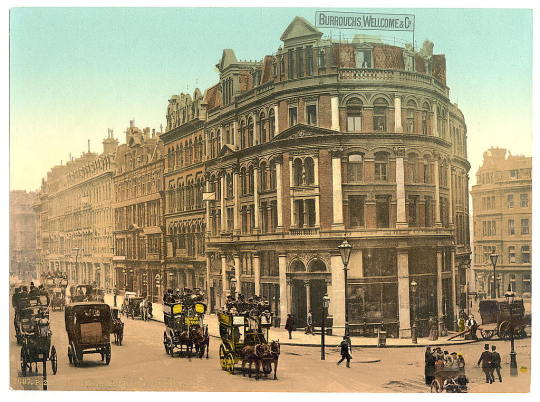
Politics and imperialism
The British Empire wasn't yet at its peak, which would be at some point between 1913 and 1922 depending on whether you define it by land or population. This was the time of the Scramble for Africa - in the 1890s alone, Britain colonised the countries that are now Uganda, Zanzibar, Malawi, Botswana, Zimbabwe, parts of Sudan and parts of South Africa. (Ish - matching 1890s borders to modern ones is tricky).
All the same, the sense of effortless British dominance was fading, because countries like Germany, France and the USA were starting to catch up. In 1896, the book 'Made in Germany' by Ernest Edwin Williams was a bestseller, bemoaning that cheaper German goods were crowding out British ones in shops. (It's available for free online; just google it if you're interested.) Here's 1890s Berlin:

Britain was only just emerging from what the Victorians called "The Great Depression" from the 1870s to early 1890s. The wealthiest and most powerful country in the world didn't always feel that way to the people living in it.
Alongside anxieties about Britain's place in the world, the other major political topic which dominated the 1890s was the question of Irish Home Rule - essentially whether Ireland should be allowed its own parliament and responsibility for domestic affairs while still remaining part of the UK. The Second Home Rule Bill passed the Commons in 1893 but was defeated in the Lords. Here's 1890s Dublin:
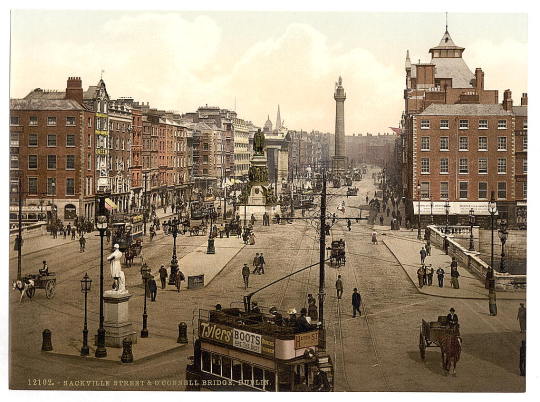
Society
Less than a percentage of the British population would have been people of colour. The 1921 census showed just 75,000 people born in India - 1897 wouldn't have been much different. All the same, the University of Oxford - i.e. one of the most elite institutions in the country - had its first black student as long ago as 1873.
This was a period of growing rights and freedoms in the UK (starting from a very low base). In 1891, children under 11 were banned from working in factories; in 1893, education was made free and compulsory for children up to age 11; in 1882, the Married Women's Property Act allowed married women to own and control property in their own right. Many socialist and trade unionist organisations were founded at this time, including a precursor to the Labour Party.

A social concern at this time were the "surplus women" - there was perceived to be a relative excess of women compared with men, prompting fears they wouldn't be able to marry and would have to work. Women were about 40% of the labour force.
If a man and a woman got engaged but the man then broke it off, the woman could sue him for "breach of promise" as this was considered a binding legal contract. The woman could break the engagement with no legal penalty. (You might recognise this as the basis for several Jeeves and Wooster plotlines).
The fertility rate was falling fast - from an average of nearly 5 children per woman in 1880 to 4 in 1895 (this would fall to 2 by 1930). Around 1 in 5 children died before the age of 5, and around 1 in 200 births resulted in the death of the mother.
Daily life and prices
There were only a handful of cars on British roads - so when Mina says she and Lucy "drove up to the house", she means by horse, not by car. But there were ~25,000km of railways in the UK, compared with about 17,000km today.

The rise of the railways and people actually getting days off meant that this was the golden age of trips to the British seaside. Train fares were a penny per mile, meaning that London to Whitby cost about 20s or a week's labour for a solicitor's clerk, with the purchasing power of £64 today.
As a full-blown solicitor, my guess (though it's only a guess) is that Jonathan is earning about twice that. A female teacher's salary was around £75 a year or 28s a week. A housemaid would earn just £10 a year, though she would get bed and board as well.
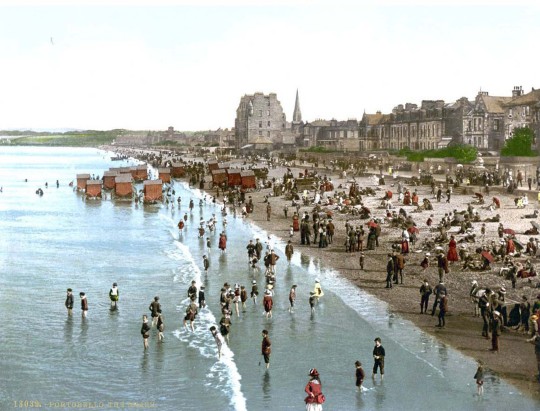
The first edition of a novel cost about a shilling and reprints cost even less - as little as a penny or two for the cheapest books. Literacy was nearly universal in the UK.
Also available for a penny were magazines like the hugely popular Tit-Bits, which was the first periodical to sell over a million copies in the UK. It consisted of short, mostly human interest snippets of information, as well as short stories. Lucy and Mina probably wouldn't read Tit-Bits, but Mr Swales might.
References, youtube links and a couple of bonuses for fanfiction writers on my original post here.
#dracula daily#dracula#historical context#historical reference#long post#a really really long post#apologies if i missed anything crucial#but it was already so long#reposting as i forgot about tumblr's external links thing#hope this works now
481 notes
·
View notes